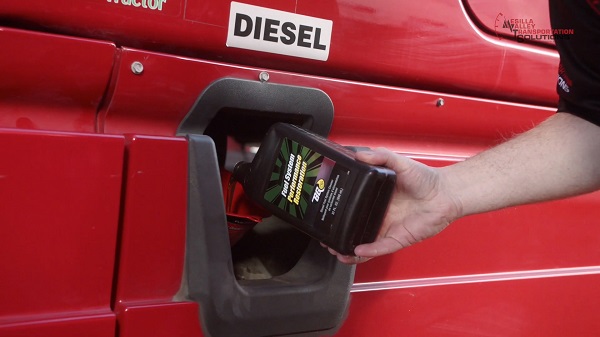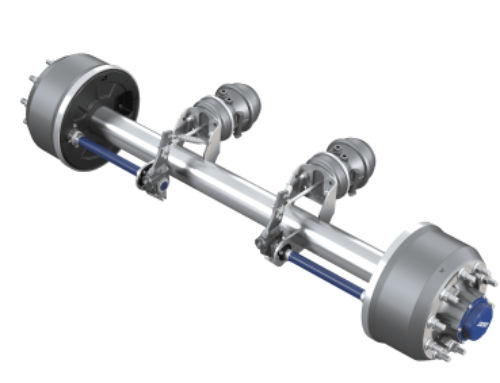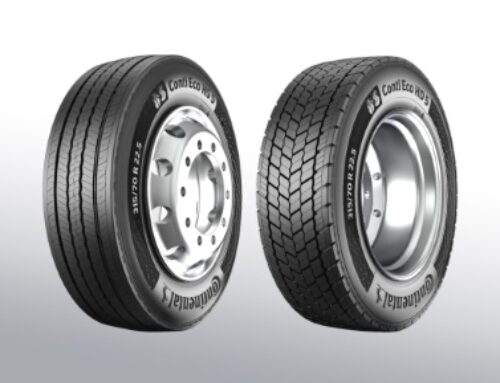BG Products helps boost fuel economy
 Emissions specialist BG Products has warned that allowing soot deposits to build up in a diesel particulate filter (DPF) could be costing fleets significantly long before the filter needs replacing.
Emissions specialist BG Products has warned that allowing soot deposits to build up in a diesel particulate filter (DPF) could be costing fleets significantly long before the filter needs replacing.
“Most fleet operators do not consider the existence of their DPF until a warning light appears on the dashboard,” said BG Products.
“In time they will become aware of the cost of cleaning or replacing that DPF. What they are usually unaware of is that same DPF has already cost them hundreds of pounds in additional fuel costs by the time that warning light has appeared.”
The company points out that according to researchers, the regeneration process can use up to five per cent more fuel – while an increase in back pressure can reduce fuel economy by two per cent, and for every 3-4 kPa in back pressure an engine can lose one per cent of power.
“At BG Products we have looked at how we can impact both regeneration frequency and duration and its impact on mpg. To validate this research, we tested the treatments with fleets. These fleets use Crafters, Transits, Eagle refuse trucks, Mercedes, DAFs and others…
“BG found the two key areas of an engine that were critical to DPF longevity were fuel injectors and piston rings.”
The company explained “Soot is a by-product of poor combustion. Combusted fuel releases soot. Some soot will enter into the DPF, some will be washed into the oil, some will be recirculated via air intake; some attaches to the inside of the combustion chamber and in particular, to the fuel injector.
“When deposits on the fine spray nozzles of the modern fuel injector, it impedes atomisation of the fuel. This interference in the critical spray pattern means that the combustion is compromised, leading to more soot.
“This increase in soot leads to additional challenges for the DPF. Now it has more soot to deal with which means that it needs to regenerate more often, using more fuel to regenerate.
“The second area to look at is piston rings. Modern rings tend to have less tension to reduce internal friction. Over time, as oil circulates, tiny deposits get behind the piston rings into the ring seats.
“These deposits are not removed in a standard oil change and as such solidify over time, leading to the restriction of the rings’ ability to centre and flex and so interfere with the seal created by the rings.
“This causes lost compression and allows crankcase gases to leak into the cylinder. These vapours carry oil and when this is combusted leads to metallic ash deposits on the DPF. Ash reduces the efficiency and longevity [of the] DPF.”
Reduced compression also affects combustion, says BG Products, leading to yet more soot.
“Again, this leads to increased DPF regenerations and more fuel consumption. Add the fact that the additional soot will also further inhibit the injectors, and that the increase in back pressure is also sapping fuel, you can see how the DPF costs hundreds in fuel, way before a warning light appears.”
Standard servicing cannot remove these deposits, says the firm.
“In our research we have serviced vehicles by using fuel injector and combustion chamber cleaners to the fuel tank, and an advanced flush to clean behind the piston rings to restore ring function.”
Live fleet examples, using the injector and the piston ring cleaning service, include a council fleet of maintenance vans, which reportedly obtained a seven-plus per cent improvement in mpg, as well as a 98 per cent reduction in DPF problems (forced regenerations and DPF replacement).
In a separate trial with another council, two Crafters’ MPGs were improved by an average of nine per cent.
“Ordinarily we expect an increase in MPG of around 4-5 per cent because of improved combustion, so the additional MPG gain is assumed to be the impact of reduced DPF regeneration plus the more frequent relief of back pressure,” said the company.
Meanwhile London Hire, which rents out minibuses to a number of London boroughs, is said to have reduced DPF issues by 96 per cent.
“The message for fleet operators is that some simple enhanced maintenance measures will reduce running costs and prolong component and vehicle life,” BG Products concluded.











